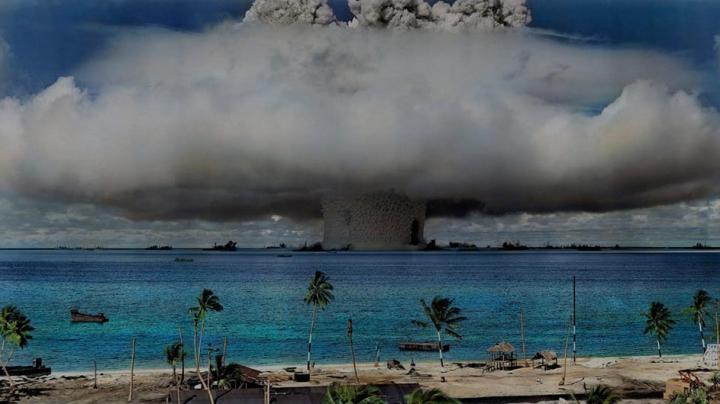Nuclear catastrophe threat is ‘great and growing’, warn over 100 top medical journals
Even ‘limited’ nuclear war with 250 of 13,000 nuclear weapons could kill 120 million people outright, op-ed says

Your support helps us to tell the story
From reproductive rights to climate change to Big Tech, The Independent is on the ground when the story is developing. Whether it's investigating the financials of Elon Musk's pro-Trump PAC or producing our latest documentary, 'The A Word', which shines a light on the American women fighting for reproductive rights, we know how important it is to parse out the facts from the messaging.
At such a critical moment in US history, we need reporters on the ground. Your donation allows us to keep sending journalists to speak to both sides of the story.
The Independent is trusted by Americans across the entire political spectrum. And unlike many other quality news outlets, we choose not to lock Americans out of our reporting and analysis with paywalls. We believe quality journalism should be available to everyone, paid for by those who can afford it.
Your support makes all the difference.The threat of a nuclear catastrophe is “great and growing” under the current global political environment, over 100 top medical journals have warned in a joint editorial.
Current efforts to control nuclear arms, as well as those for non-proliferation are “inadequate” to protect the world’s population against the threat of nuclear war, the editors of the journals warned, while pointing to the danger underlined by growing tensions between many nuclear armed states.
“As editors of health and medical journals worldwide, we call on health professionals to alert the public and our leaders to this major danger to public health and the essential life support systems of the planet – and urge action to prevent it,” the editors of journals like Lancet, BMJ, JAMA and the New England Journal of Medicine said in the op-ed.
They also warned of the increasing risk of rapid escalation with the modernisation of nuclear arsenals by many countries, including China and the US.
Citing an example, the editors noted that hypersonic missiles under constant development by many countries decrease the time available to distinguish between an attack and a false alarm.
“Any use of nuclear weapons would be catastrophic for humanity,” they said.
“Even a ‘limited’ nuclear war involving only 250 of the 13,000 nuclear weapons in the world could kill 120 million people outright and cause global climate disruption leading to a nuclear famine, putting two billion people at risk,” the editorial said.
Once a nuclear weapon is detonated in any part of the world, escalation to an all-out nuclear war can occur rapidly.
They called for the prevention of any use of nuclear weapons as an urgent public health priority, adding that fundamental steps be taken to abolish all nuclear weapons.
The editors called on health professional associations worldwide to support efforts urging the adoption of a “no first use policy” and urge all states currently involved in conflicts to publicly and unequivocally pledge that they will not use nuclear weapons in these conflicts.
“The danger is great and growing. The nuclear armed states must eliminate their nuclear arsenals before they eliminate us,” they wrote.



Join our commenting forum
Join thought-provoking conversations, follow other Independent readers and see their replies
Comments